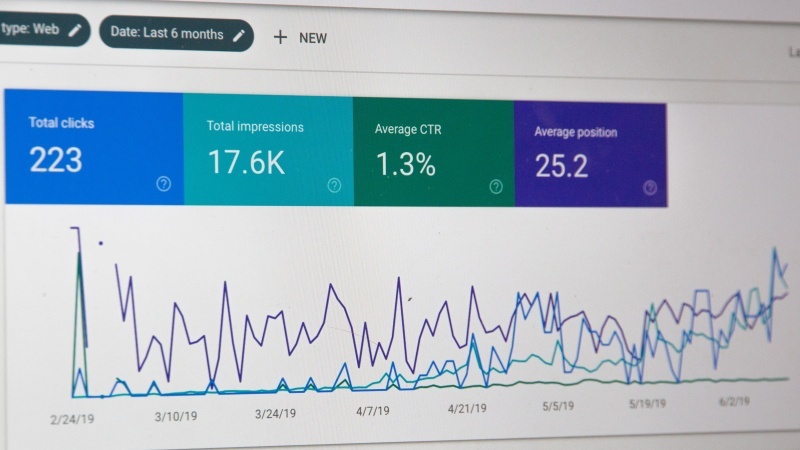A fundamental component of Inbound Marketing, the determining factor in your presence on Search Engine Results Pages (SERPs), and the topic that seems to be on everyone’s lips: Search Engine Optimisation (SEO).
According to HubSpot’s State of Inbound Report, B2B companies focus on converting new leads over any other marketing challenges! However, in order to convince viewers to place their trust in your brand, your content has to be seen by potential clients. Therefore, generating traffic is a top priority.
Improving upon the way you appear to other business’ online is crucial, but before you can work on increasing your visibility it’s important to understand what SEO really is.
What Does Search Engine Optimisation Really Mean?
The focus of SEO is to use techniques that influence how you appear on search engines, such as Google. When integrated effectively into your content, these tools can help you rank higher on the results pages, which increases both the quality and quantity of traffic to your website.
But while the concept of SEO itself has remained relatively constant, the SEO tools that B2B businesses are turning to are facing constant evolution. When determining a Search Engine Optimisation strategy that fits in line with your Inbound Marketing efforts, it’s good to start off with knowing how search engines actually respond to different techniques.

How Does Google Rank Results?
The biggest challenge most Inbound Marketers face is generating traffic. Regardless of how many hours you spend perfecting your blogs, designing infographics, or customising your website, without some insight into the algorithms of search engines like Google, you won’t be receiving any more website visitors than before.
First things first, we need to look into the primary factor that the algorithms take into account – and that is mainly the content you publish.
Content and SEO
If you’ve ever typed a phrase into Google, hit enter, and clicked on an unpaid link, you’ve completed what is known as an organic search.
When sorting through the millions of results that pop up when a user performs an organic search, Google and other similar search engines look at how well your content matches the original query. This is where the Inbound Marketing philosophy plays a massive role, because content marketing tackles this exact challenge.
Tailoring your websites and blogs to frequently researched subjects will increase your overall visibility online. Incorporating keywords is especially effective because they signpost to search engines what your content is about.
However, beware of something called “Keyword Stuffing” – quite literally stuffing as many terms as possible into your work. Search engines can identify this shortcut, which lowers your website’s SEO, and this isn’t what content marketing is meant to achieve. You have to keep in mind what your Buyer Persona is looking for.
Authority
Secondly, search engines look at how popular your website already is, i.e. how much traffic it receives. This notion is more straightforward than the former. Google and such just assume that the more people visit your site, the more valuable its content will be for future users.
And your authority on a subject is not secret information that only Google has access to. Tools such as Google Analytics and Google Search Console reveal how popular your site is doing and are easily accessible by any website owner.
This means that you can keep tweaking your website step by step to build up your SEO and subsequently raise your reputation amongst users.
Google also looks at something called backlinks, or inbound links, which manifest when another website provides the URL to your page within its content. Valuable organic backlinks (not bought ones!) are registered by search engines as another confirmation of your authority. The essence of inbound links, as it comes to be with many areas of inbound marketing, is quality over quantity.
Another way to bulk up your authority is to create an entire content experience for your audience. Rather than focussing on individual keywords, establishing a conceptual content pathway that addresses the pain points of your Buyer Persona will prove to be much more successful.
In other words, implementing something called Topic Clusters can help enrich your potential clients’ experience on your website and help you connect with them on a deeper level.

Organic and Direct Traffic
These two types of traffic are the most valuable in both optimising your SEO and increasing your chances of converting a new lead.
Organic traffic is the unpaid influx of site visitors filtered in via search engines, social media, or another website (aka backlinks). A significant element within this realm is the concept of social search, which is when Google and such consider who people are connected with on social media to determine the content they see when they open Facebook, Twitter, and more.
SEO now takes into account tweets, retweets, and other social signals. So keeping a focus on your social sphere is now also a factor to consider.
Secondly, direct traffic refers to when users type your website’s URL directly into their browser. This can be improved by increasing your rank for specific keywords and ensuring that your audience actually stays on your website and views your content rather than clicking away.
As engines like Google heavily consider how you attract your audience when determining your authority, knowing the types of traffic to focus on is really important.
Maintaining Strong SEO
So you’ve got your initial SEO marketing system in place and everything is running smoothly – now what?
Despite what you might think, the key to good Search Engine Optimisation lies in what comes after you set up your content. The online world is dynamic and things are constantly changing, so staying up to date with prospective clients’ preferences with various SEO analysers is where the real magic is.
- Use a keyword research tool. This can help you not only find out which keywords people are finding you with, but indicate which new keywords you can target to up your SEO ranking. With the results from this research you can set up a strong and sustainable keyword strategy.
- Create new content in line with your content marketing strategy, but also optimise existing content to match the goals you set out in your keyword strategy.
- Keep track of your website’s performance, in particular how your content ranks on SERPs and the quantity of traffic passing through your site. Your click-through rate (CTR) and conversion rate are also really effective ways of measuring how well your marketing efforts are doing. We at &weekly can run these analytics to see how your content is being received by your target audience and help you fine-tune your work to maximise its success.
- Look at other successful websites selling a similar product or service to find out what your business might be missing. Once you’ve defined your keyword strategy, tools such as SEMrush, Ahrefs or Moz can help you determine how competitors are performing, giving you some helpful pointers on how to optimise your own site.
You’re Set!
The key to good SEO is keeping up with the game and constantly modifying your content to match the ever-evolving needs of your clients. Knowing what elements bump you up the list of results on search engines is the way for any inbound marketer to excel at building a strong online presence.
Combining keyword research and targeted quality content will set you on your path to success. While we touched upon the general points on how to foster your SEO, there are several technical ranking factors such as load speed, tagging, and more. There are a ton of tools out there, that with just a few clicks can reveal if your website has the optimal set-up. Check out this cool article for more detail.
Have any burning questions? Leave a comment below or check out our free Inbound Marketing Audit!





